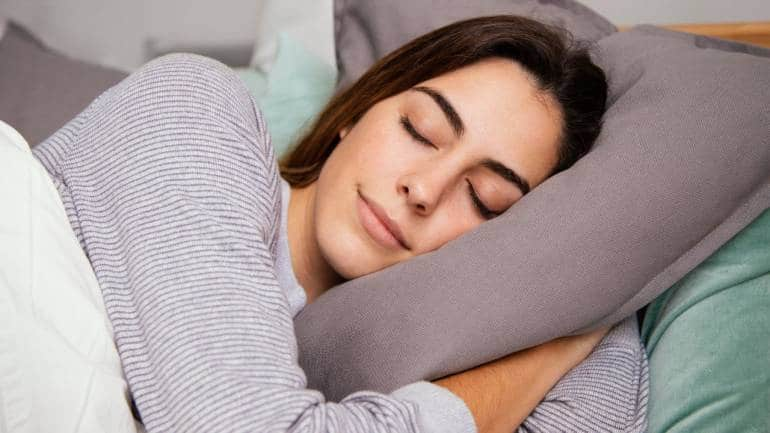



Late night parties, chilling with friends, binge-watching that new series on OTT, and, if you get some time away from all this, you even squeeze in giving finishing touches to that office PPT your boss has been waiting for more than a week now! You have set your priorities pretty fine: work hard, play even harder.
But what about your sleep cycle? Didn't anybody ever tell you that getting some quality shut eye every day is as essential as eating healthy or working out in the gym? No, you cannot induce sleep by drinking. No, taking frequent naps through the day doesn't compensate for 6-7 hours of proper, uninterrupted sleep. These are myths, and like all myths, they mess up with your life.
Also read: Do you wake up multiple times in the night to pee? It could be a warning signWe asked Sheetal Shaparia, a Mental health and Life Coach, and Dr. Jagdish Chattnalli, Director of Neurosciences & Lead Consultant Neurosurgeon at AASRA Hospitals, to debunk a few myths about sleep. Here is what they said.
Myth 1: Alcohol can help you sleep betterOn the face of it, it appears that alcohol helps you sleep. But drinking to induce sleep is not advisable as it worsens sleep apnea. It will interfere with your REM (Rapid Eye Movement) sleep, much needed by our bodies, and even leave you with incomplete sleep.
Myth 2: Snoring is normalMany people think snoring is nothing but a sign of extreme exhaustion. However, be warned that loud snoring is a literal call out to health issues. Frist up, loud snorers most likely have obstructive sleep apnea. Experts and multiple suggest warn that they tend to be more prone to cardiac problems.
Myth 3: Relaxing by using your phone in bed before sleeping is okayMany believe that binge-watching or scrolling through those addictive Instagram reels right before sleeping is 'relaxing'. Stop it immediately. It does nothing but delays sleep. The light emitted by our devices interrupts the release of melatonin, which helps us sleep more soundly. Avoid using electronic devices just before going to sleep. Instead, read a book or go for a light stroll to truly relax.
 Sleeping in installments is not healthy and doesn't make up for completing the ideal 7 to 9 hours of sleep in the night (Image: Freepik)Myth 4: Your body gets used to a lack of sleep
Sleeping in installments is not healthy and doesn't make up for completing the ideal 7 to 9 hours of sleep in the night (Image: Freepik)Myth 4: Your body gets used to a lack of sleepNo, it doesn't. Sleep deprivation is the worst thing you can do to your body. In the initial days, you might be able to cope with lack of sleep, but continued lack of sleep leaves you disoriented and hampers your ability to concentrate. If it is prolonged, it comes with a string of health complications.
Myth 5: Taking a nap compensates for lack of nighttime sleepSleeping in installments is not healthy and doesn't make up for completing the ideal 7 to 9 hours of sleep in the night. Irregular sleeping can have health repercussions and is to be avoided strictly. It throws off your sleep schedule and makes you feel groggy or sluggish after waking up.
Many believe they can catch up on sleep over the weekend after a week of sleep deprivation. However, research shows that “catching up” on sleep is not an effective strategy for restoring optimal sleep patterns. Irregular sleep patterns can disrupt your body’s natural sleep-wake cycle and make it more difficult to fall asleep and stay asleep.
Myth 7: The brain shuts down during sleepContrary to popular belief, the brain is active during sleep. It is during sleep that the brain consolidates memories, processes emotions, and repairs itself. Different stages of sleep involve different brain activities, and each stage is essential for our physical and mental health. Rapid Eye Movement (REM) sleep, for example, is essential for cognitive function and emotional well-being.
Myth 8: Sleep disorders only affect older peopleSleep disorders can affect anybody, irrespective of the age. In fact, sleep disorders such as insomnia, sleep apnea, and restless leg syndrome are becoming increasingly common in younger populations. It is important to prioritise good sleep habits early in life and seek medical attention if you are experiencing sleep disturbances.
Discover the latest Business News, Sensex, and Nifty updates. Obtain Personal Finance insights, tax queries, and expert opinions on Moneycontrol or download the Moneycontrol App to stay updated!
Find the best of Al News in one place, specially curated for you every weekend.
Stay on top of the latest tech trends and biggest startup news.